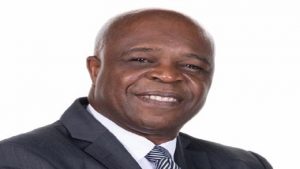Lord Peter Hain and Professor Andre Odendaal have launched a ground-breaking book, ‘‘Pitch Battles” about sport, racism and resistance. It’s a book about how sport played a part in bringing down the apartheid regime through protest, sacrifice and ultimately isolation.
Pitch Battles starts with the role Britain played through Cecil John Rhodes in setting up apartheid; treating the indigenous people as second class citizens. The topic still rages on today with the BlackLivesMatter movement.
“In Pitch Battles, Peter Hain and I try to explain the making of the sports system in SA from colonialism in the 1800s to the coronavirus in 2020. And it actually ends in a very relevant moment at the time of BlackLivesMatter and in strange coincidence – what we’ve tried to do in the book is to show how the systematic nature of racism evolved in SA and naturally in SA Sport. So – it’s important for us that we deal with those issues after Pitch Battles – no one can say they didn’t know the kind of denialism that we still see in confronting the past in SA.
Hopefully this will help people to understand the kind of reality that needs to be acknowledged before we can really move on in a unified way and using sport as a genuine nation building thing than an issue that divides us regularly even now,” says Professor Odendaal.
Changing face of SA sport
Odendaal says the vision for the book was birthed during a meal with Hain two years ago. “And I suggested it’s 50 years coming up to those path breaking demonstrations in 69/70 against the White only Springbok rugby teams that changed the face of SA sport. Up until then people got away with keeping politics out of sport. Some demonstrations at the cricket and rugby matches were politely ignored but once the guys ran onto the pitches; started chaining themselves to rugby posts and harassing that team in 24 out of 25 matches – it changed the entire international perception of apartheid in sport.
That also gave us strength to the internal resistance movement in SA after the 60s SANRAC and SASSA the early sports organisations for non-racial sport were banned and the NSACOS emerged in 1973. Again as part of a renewed resistance including the trade union movement, the Soweto uprisings and became very powerful inside the country representing the people that were excluded in SA sport.”
While conquerors always get to write the history – Pitch Battles attempts to set the record straight.
Odendaal says with all the racism and discrimination, Black sports people still managed amazing achievements even though past regimes have tried to obliterate that history.
“Most important for us are the people in the past who are not included in, completely obliterated from history like the apartheid school text books. Black people were totally left out and there are amazing stories going back to the first soccer tour from SA to Britain in 1899 by a team of African Footballers from Bloemfontein led by Joseph Twayhe who believe it or not – played against teams like Liverpool, Arsenal and Newcastle United,” he adds.
Professor Odendaal says the aim of the book is for people often forgotten to be remembered for their courage and the role they played in the dismantling of the inhumane apartheid system. These include those who paid the ultimate price for the liberation of millions of South Africans, like Dennis Brutus, who was shot and then tortured on Robben Island and John Harris who was hanged.
Own up and move forward
The Professor says the book also seeks to get South Africans to move forward to a better future.
However, he says, for this to happen – White South Africans need to acknowledge the past and stop the denialism.
“It’s really time for me as a White South African to say that White South Africans need to own up and just a mere acknowledgement. Gary Player has reinvented himself as one of the discoverers and heroes of the new democratic order. But it was him who said in 1966 and that every time he got his first grand slam major in gold – I am South African and I must say now and clearly that I am of SA of Verwoerd and apartheid.”
He believes that Player still owes South Africans an apology for his past utterances. Professor Odendaal also believes that the notions of segregation, with people believing that races should develop separately, is nonesensensical. ” And all it takes for basic fundamentalist dishonesty to go away is for Gary Player to say one word – sorry I did think that at some stage instead of denialism,” he adds.
Odendaal says they hope the book will help unify South Africans.






